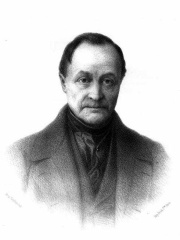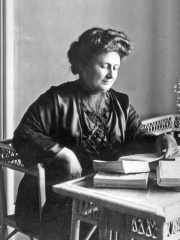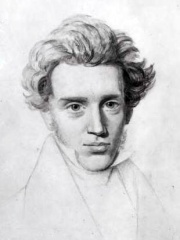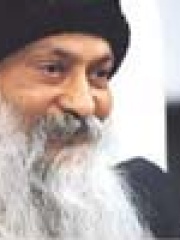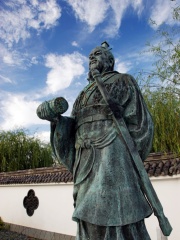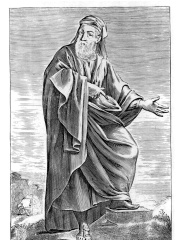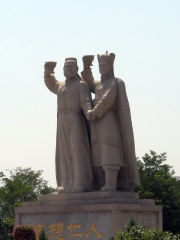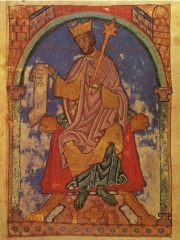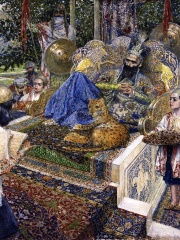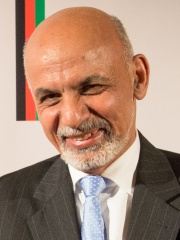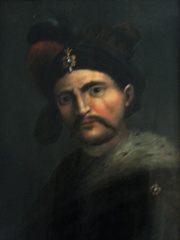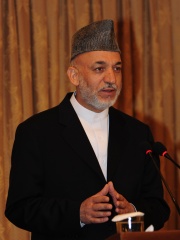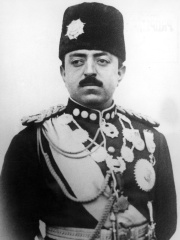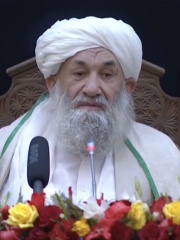Philosopher
Al-Farabi
872 - 951
EN.WIKIPEDIA PAGE VIEWS (PV)
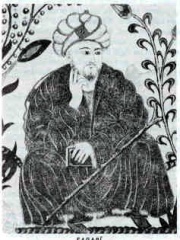
 Al-Farabi
Al-Farabi
His biography is available in 80 different languages on Wikipedia (up from 79 in 2024). Al-Farabi is the 39th most popular philosopher (down from 35th in 2024), the 2nd most popular biography from Afghanistan and the most popular Afghan Philosopher.
Al-Farabi is most famous for his work on the philosophy of Plato and Aristotle.
Memorability Metrics
Page views of Al-Farabi by language
Among Philosophers
Among philosophers, Al-Farabi ranks 39 out of 1,267. Before him are Auguste Comte, Martin Heidegger, Maria Montessori, Parmenides, Søren Kierkegaard, and Origen. After him are Lucretius, Rajneesh, Michel de Montaigne, Sun Tzu, Empedocles, and Plutarch.
Most Popular Philosophers in Wikipedia
Go to all RankingsAuguste Comte
1798 - 1857
HPI: 85.43
Rank: 33
Martin Heidegger
1889 - 1976
HPI: 84.92
Rank: 34
Maria Montessori
1870 - 1952
HPI: 84.59
Rank: 35
Parmenides
501 BC - 470 BC
HPI: 84.47
Rank: 36
Søren Kierkegaard
1813 - 1855
HPI: 84.47
Rank: 37
Origen
185 - 254
HPI: 84.46
Rank: 38
Al-Farabi
872 - 951
HPI: 84.23
Rank: 39
Lucretius
94 BC - 55 BC
HPI: 83.96
Rank: 40
Rajneesh
1931 - 1990
HPI: 83.75
Rank: 41
Michel de Montaigne
1533 - 1592
HPI: 83.66
Rank: 42
Sun Tzu
544 BC - 496 BC
HPI: 83.60
Rank: 43
Empedocles
490 BC - 430 BC
HPI: 83.60
Rank: 44
Plutarch
46 - 127
HPI: 83.51
Rank: 45
Contemporaries
Among people born in 872, Al-Farabi ranks 1. After him are Abaoji, and Pietro II Candiano. Among people deceased in 951, Al-Farabi ranks 1. After him are Ramiro II of León, and Emperor Shizong of Liao.
Others Born in 872
Go to all RankingsAl-Farabi
PHILOSOPHER
872 - 951
HPI: 84.23
Rank: 1
Abaoji
POLITICIAN
872 - 926
HPI: 68.89
Rank: 2
Pietro II Candiano
POLITICIAN
872 - 939
HPI: 58.96
Rank: 3
Others Deceased in 951
Go to all RankingsAl-Farabi
PHILOSOPHER
872 - 951
HPI: 84.23
Rank: 1
Ramiro II of León
POLITICIAN
898 - 951
HPI: 67.92
Rank: 2
Emperor Shizong of Liao
POLITICIAN
919 - 951
HPI: 64.46
Rank: 3
In Afghanistan
Among people born in Afghanistan, Al-Farabi ranks 2 out of NaN. Before him are Rumi (1207). After him are Mahmud of Ghazni (971), Ashraf Ghani (1949), Roxana (-347), Ahmad Shah Durrani (1722), Abbas the Great (1571), Mohammed Zahir Shah (1914), Hamid Karzai (1957), Amanullah Khan (1892), Hasan Akhund (1945), and Burhanuddin Rabbani (1940).
Others born in Afghanistan
Go to all RankingsRumi
WRITER
1207 - 1273
HPI: 86.64
Rank: 1
Al-Farabi
PHILOSOPHER
872 - 951
HPI: 84.23
Rank: 2
Mahmud of Ghazni
POLITICIAN
971 - 1030
HPI: 80.67
Rank: 3
Ashraf Ghani
POLITICIAN
1949 - Present
HPI: 78.69
Rank: 4
Roxana
COMPANION
347 BC - 310 BC
HPI: 78.55
Rank: 5
Ahmad Shah Durrani
POLITICIAN
1722 - 1772
HPI: 78.09
Rank: 6
Abbas the Great
POLITICIAN
1571 - 1629
HPI: 77.08
Rank: 7
Mohammed Zahir Shah
POLITICIAN
1914 - 2007
HPI: 76.65
Rank: 8
Hamid Karzai
POLITICIAN
1957 - Present
HPI: 76.45
Rank: 9
Amanullah Khan
POLITICIAN
1892 - 1960
HPI: 75.51
Rank: 10
Hasan Akhund
POLITICIAN
1945 - Present
HPI: 75.51
Rank: 11
Burhanuddin Rabbani
POLITICIAN
1940 - 2011
HPI: 75.48
Rank: 12
Among Philosophers In Afghanistan
Among philosophers born in Afghanistan, Al-Farabi ranks 1. After him are Ibn al-Rawandi (827), and Ibrahim al-Nazzam (760).
Al-Farabi
872 - 951
HPI: 84.23
Rank: 1
Ibn al-Rawandi
827 - 911
HPI: 67.00
Rank: 2
Ibrahim al-Nazzam
760 - 835
HPI: 59.64
Rank: 3
